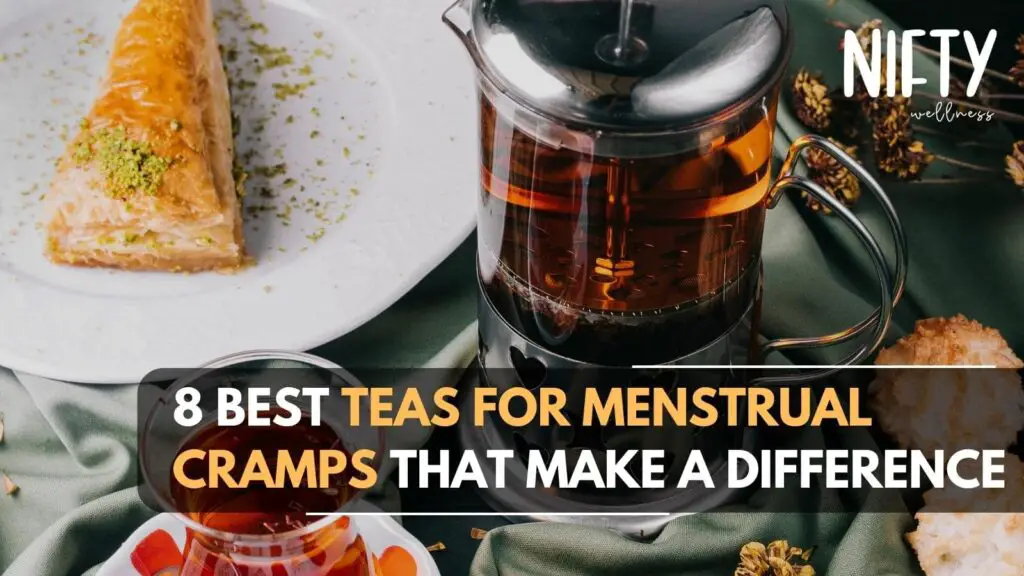Oh, menstrual cramps, the unbearable, throbbing, and relentless cramps we all know and love (to hate). Embarking on the journey of menstrual cramps, we’ve all experienced the unwelcome throbbing discomfort we’d rather live without. Any kind of help is a blessing, even pills that we know are unhealthy. But at that moment, it’s hard to say no.
Desperation often leads us to pills, acknowledging their not-so-healthy nature, yet the relief they promise is tempting. However, this article aims to steer you toward a superior, natural alternative. Brace yourself for a revelation – the best teas tailored to ease period cramps, offering a gentler and more wholesome remedy for those challenging moments.
Well, in this article, we hope to give you a better, natural solution. These are the best teas for period cramps.
What Causes Menstrual Cramps
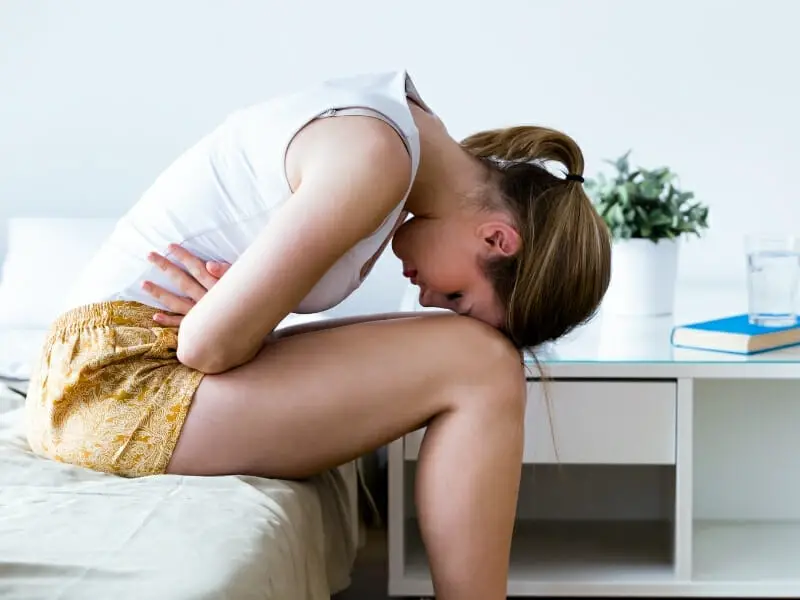

Before we get into the best menstrual teas (not the best name), we need to understand what causes the cramps, so the tea’s effects make more sense.
So, very shortly. During your period, your uterus contracts to clear out the now-useless lining. The process involves inflammation and pain, and cramps happen naturally by the contractions. But, they can often be exaggerated because of:
- Endometriosis: The uterus tissue gets stuck somewhere outside of the uterus instead of exiting.
- Adenomyosis: The tissue breaks through the muscle wall of the uterus.
- Pelvic Inflammatory Disease: Sexually transmitted disease in which abscesses develop in the tract.
- Uterine Fibroids: noncancerous growths in and around the uterus
- Cervical Stenosis: The opening is too small and impedes flow, causing pressure to build up.
As we can see, inflammation plays a big role in menstrual cramps. In fact, most of the pills you’re probably taking are anti-inflammatory drugs. Luckily, many teas have natural anti-inflammatory properties. So let’s see what’s the best tea for your period cramps.
Check out our latest blog The Best Sencha Green Tea Brands + 5 Green Tea Benefits. Embark on a flavourful journey, where each sip narrates a tale of freshness and vitality.
Best Teas For Menstrual Cramps

Chamomile Tea
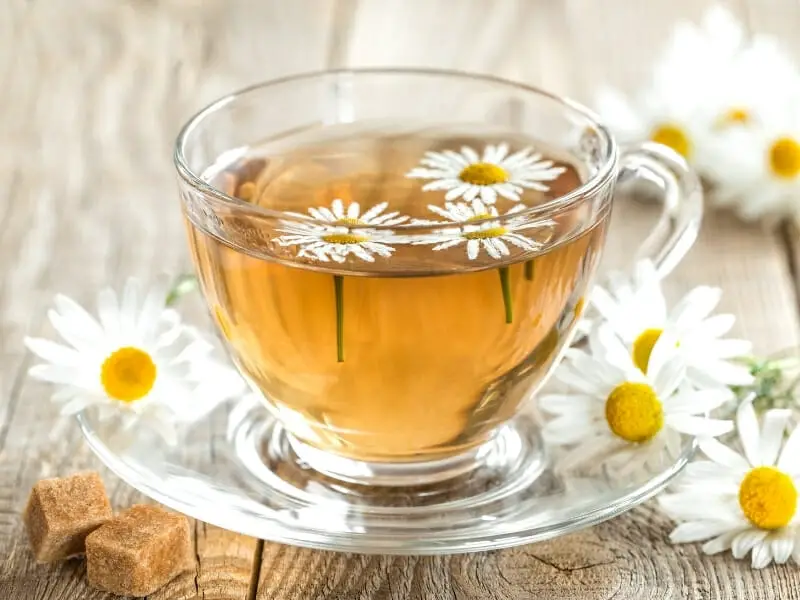
You may know chamomile tea as “the relaxing tea”. And it is. Chamomile tea is well known for its calming and sedative effects; it’s extremely helpful in soothing anxiety and stress and improving sleep.
Now that in itself already makes chamomile a good tea for menstrual cramps, as the more relaxed the body is, the better. Also, improving sleep quality can alone be a blessing in itself.
But the benefits go further; chamomile tea contains an antioxidant named apigenin, which can help lower inflammations.
One study showed that women who consumed the tea one week before menstruation and during the first days had significantly less pain, discomfort, and anxiety. This makes chamomile one of the best teas for PMS in general.
Ginger Tea
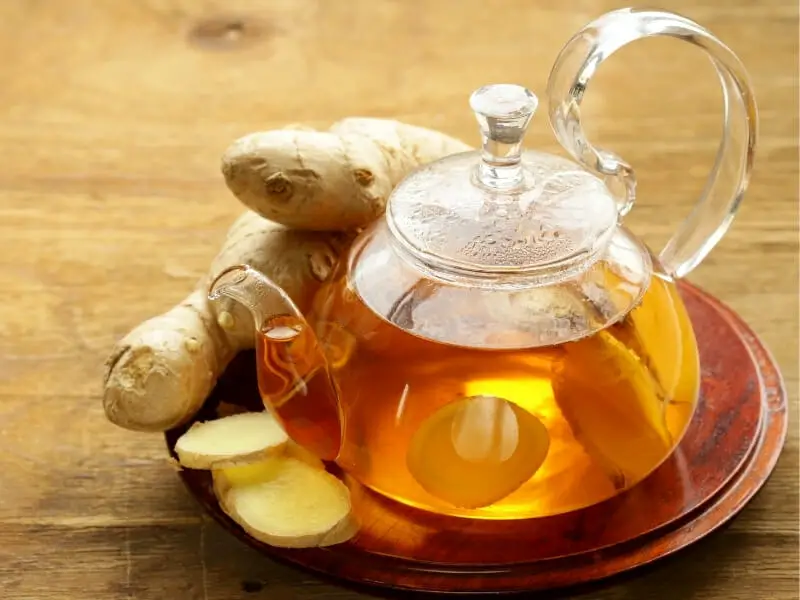
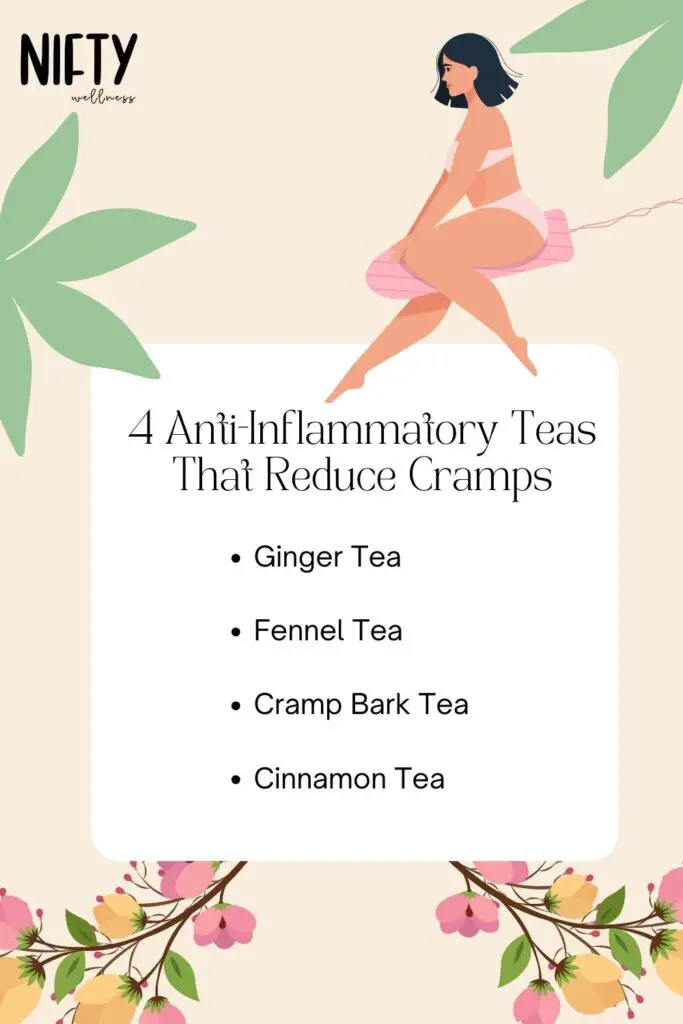
Ginger might just be the best tea for cramps in terms of inflammation. If you didn’t know, ginger is one of nature’s most powerful anti-inflammatory “drugs”. It has been used in traditional medicine for many centuries, which shows what a valuable plant it is.
One study done in 2012 found that women experienced lower levels of pain, as well as a shorter duration, when consuming 500mg of ginger. And another study done in 2015 showed that ginger alleviates cramps and reduces heavy blood flows.
These effects can be credited to ginger’s main compound, gingerol, which is full of medicinal properties. Most notably, powerful anti-inflammatory properties. As a bonus, ginger is also known to calm nausea, which may just be a part of your experience.
Green Tea
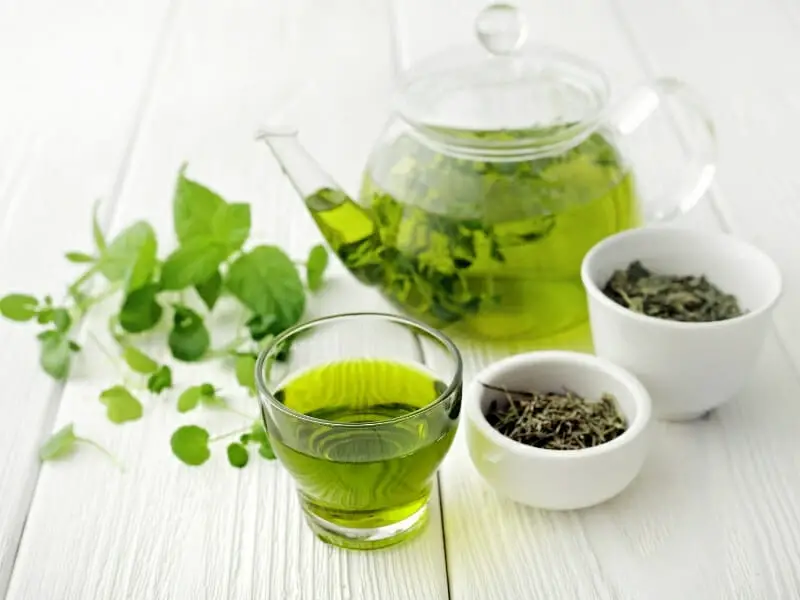
The most basic of teas, but you really can’t go wrong with it. While green tea’s effects are a bit less substantial, you can mix it with almost any tea for a better taste and extra help.
Green tea is a natural diuretic, which means it promotes urine. That might sound irrelevant, but water retention is a major cause of bloating and cramps. Also, green tea contains catechin, a type of polyphenol that can improve blood flow and reduce inflammation.
One study showed that green tea could be especially helpful for uterine fibroids, a common cause of extreme menstrual cramps (mentioned in the first section).
Fennel Tea
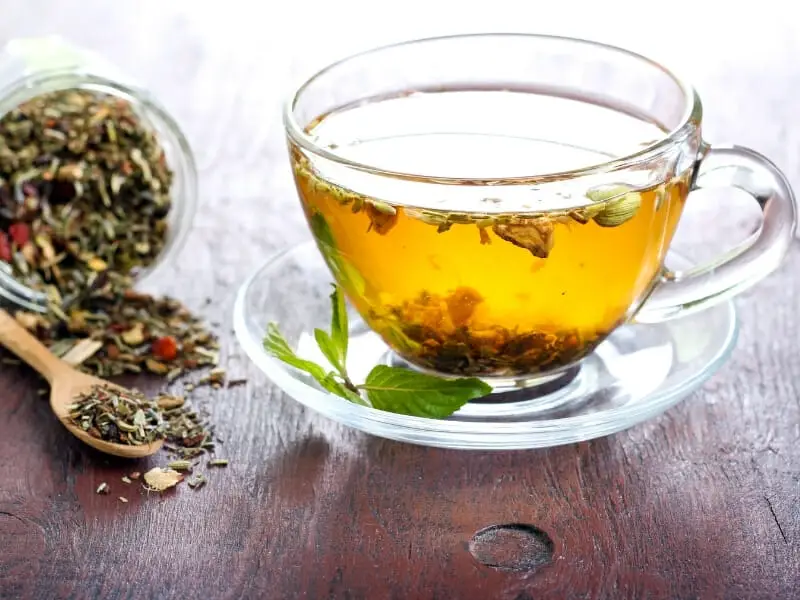

Fennel tea is well known for helping digestion as well as easing bloating, gas, and cramps. It also tastes a little like licorice, which is nice. If you like licorice.
Those effects could be partly credited to fennel’s vitamin C and quercetin content, powerful antioxidants that have anti-inflammatory effects.
One study had 52% of women who drank fennel tea report an excellent effect on pain, and 20% a reported moderate effect. That’s a 72% chance that fennel tea might help your cramps!
Cramp Bark Tea
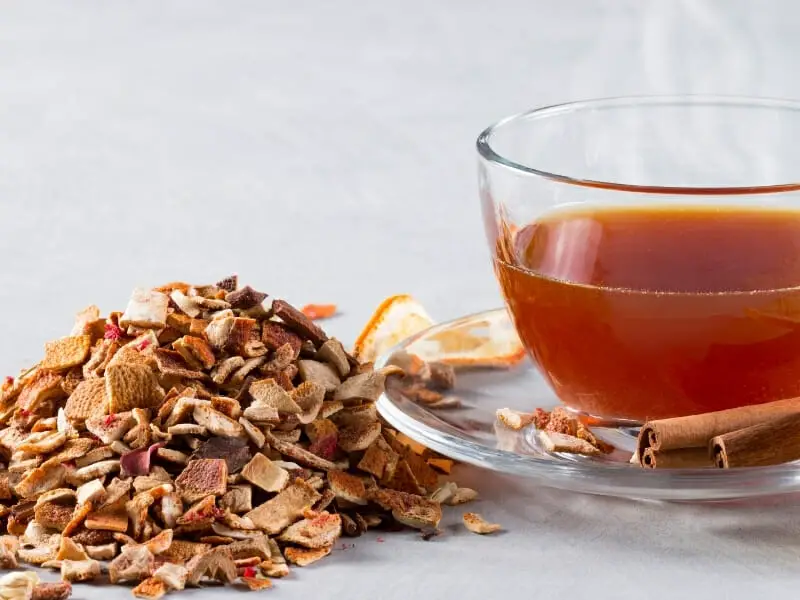
This is an odd name-coincidence. Cramp bark tea is made from the bark shavings of the Viburnum Opulus. And while the name has nothing to do with the effects, cramp bark is known to relax muscles, thus helping to soothe period cramps.
It’s also known to improve nervous disorders, which may accompany your PMS. And it has some anti-inflammatory effects, which further helps menstrual cramps.
Peppermint Tea
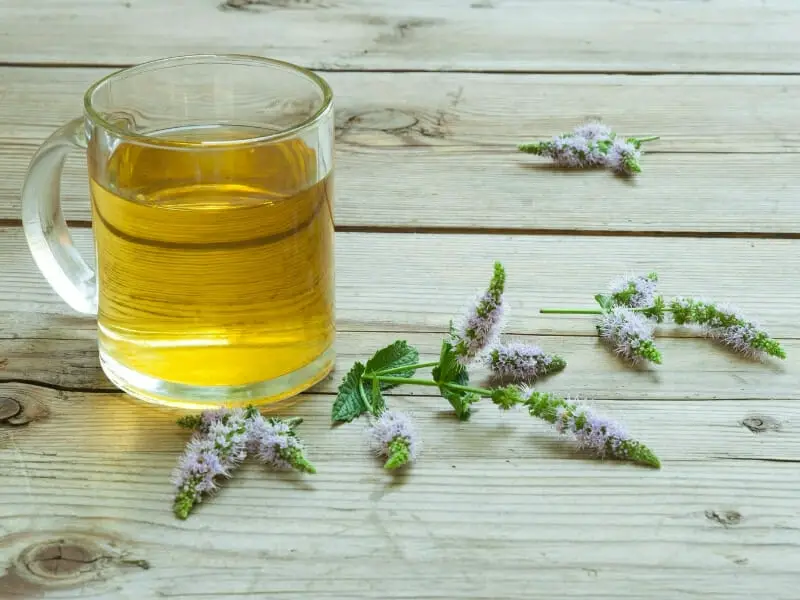
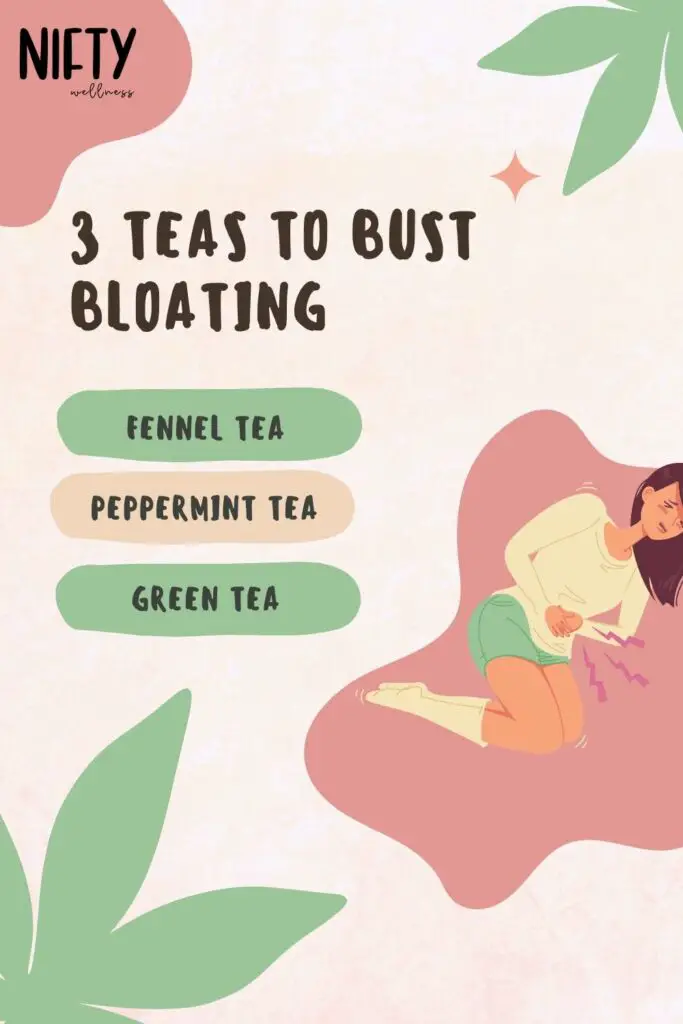
Peppermint tea tastes wonderful, it’s fresh and uplifting, and something about that alone can help alleviate some symptoms. But for cramps, peppermint tea contains menthol, which has antispasmodic properties.
These properties are known to mitigate bloating and ease constricting muscles, which means less intensive contractions, which means less pain.
Peppermint tea also contains mefenamic acid, which one study shows can effectively relieve menstrual cramps. These two compounds, combined with the uplifting effects, make peppermint one of the best teas for cramps.
Cinnamon Tea
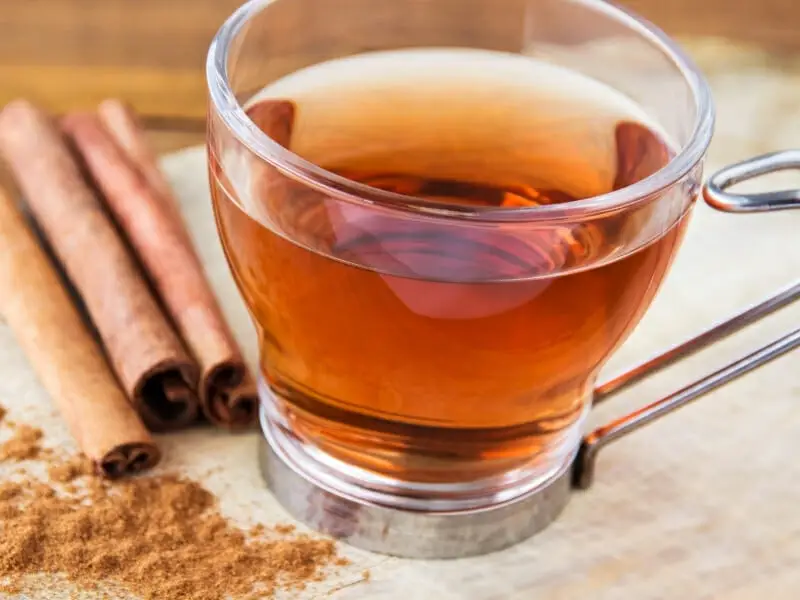
We put cinnamon tea right after peppermint as both of them share antispasmodic properties. This means cinnamon tea will also help to ease contractions.
In addition, cinnamon tea has anti-inflammatory properties, which will further ease pain, as we’ve already discussed. It also smells and tastes delicious.
Raspberry Leaf Tea
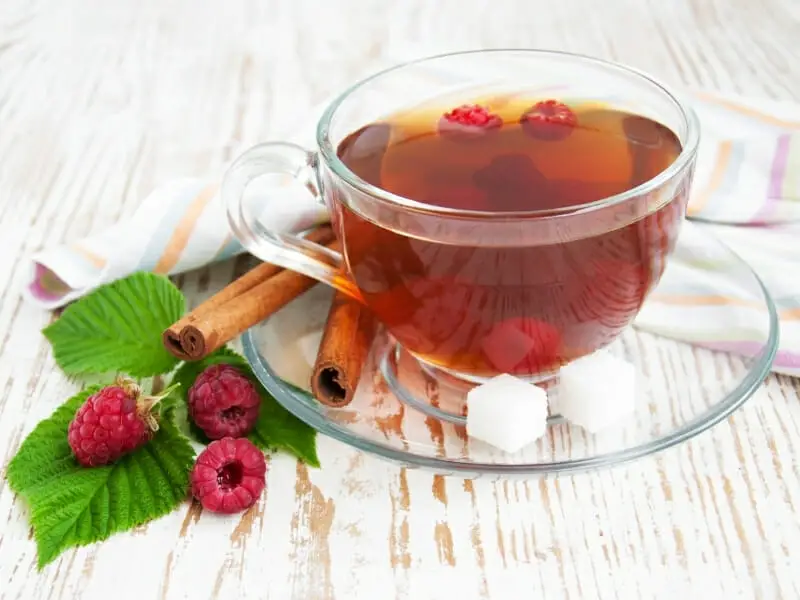

Raspberry leaf tea is a tea made of, well, raspberry leaves. You can make it either from fresh leaves or dry ones. In both forms, the leaves contain fragrine, a type of alkaloid that affects smooth muscle, particularly the uterine muscle.
We put this tea last as there is some conflicting data. Some studies show fragrine to cause more contractions, while some show it to ease contractions. You can read more about it here. If you choose this tea, the best thing to do would be to test and see how it affects you particularly.
Read our blog The Best Loose Leaf Tea for Beginners. Elevate your tea ritual with our premium loose leaf teas.
Conclusion
So these are the best teas for cramps according to our research, of course, there are many more teas that can be beneficial. For example, blueberry tea, which we wrote about, has anti-inflammatory effects.
It’s all about testing and seeing what’s the best tea for your cramps. We hope we gave you some ideas! Try them out and be sure to let us know in the comments if they helped. Don’t hesitate to share your unique tea discoveries – your insights might be the relief someone else seeks!
Frequently Asked Questions (FAQs)
Can any tea help with cramps, or are specific types more effective?
Certain teas, like peppermint and ginger, have shown potential in alleviating cramps. Peppermint tea’s menthol content may ease muscle contractions, providing relief. Ginger tea, with its anti-inflammatory properties, may help reduce discomfort. Chamomile tea’s calming effects could also aid in soothing cramps. While individual responses vary, incorporating these teas into your routine might offer a natural and comforting approach to managing cramps.
How soon can I expect to feel relief after drinking tea?
The speed of relief after drinking tea for cramps varies. Some may experience relief within 30 minutes, while others might take several hours. It depends on factors like the type of tea, individual metabolism, and the severity of cramps. Consistent consumption, especially during the onset of discomfort, may enhance the tea’s effectiveness in providing relief over time.
Are there any side effects to drinking tea for cramp relief?
Generally, drinking tea for cramp relief is safe. However, excessive consumption or sensitivity to certain herbs may lead to mild side effects like digestive issues or allergic reactions. Peppermint tea, for instance, may cause heartburn in some. It’s advisable to moderate tea intake and consult a healthcare professional if concerns arise. Pregnant individuals or those with specific medical conditions should seek personalized advice.
Can I add sweeteners or milk to my tea for cramp relief?
Certainly, you can add sweeteners or milk to your tea for cramp relief. However, be mindful of sugar content, as excessive sugar may contribute to inflammation. Opt for natural sweeteners or honey. Milk, especially in herbal teas, can enhance flavour. Experiment with different combinations but keep it moderate to ensure the therapeutic benefits of the tea for cramp relief are not compromised.
Are there teas to avoid for cramp relief?
Some teas might not be the best for cramp relief. Those with a bunch of caffeine, like black or green tea, might not help and could even make cramps worse. Also, certain herbal teas might not be agreeable to everyone. If you’re unsure, it’s good to see how your body reacts and chat with a doctor to find the teas that work best for you. Remember, everyone’s different, so find what suits you!
